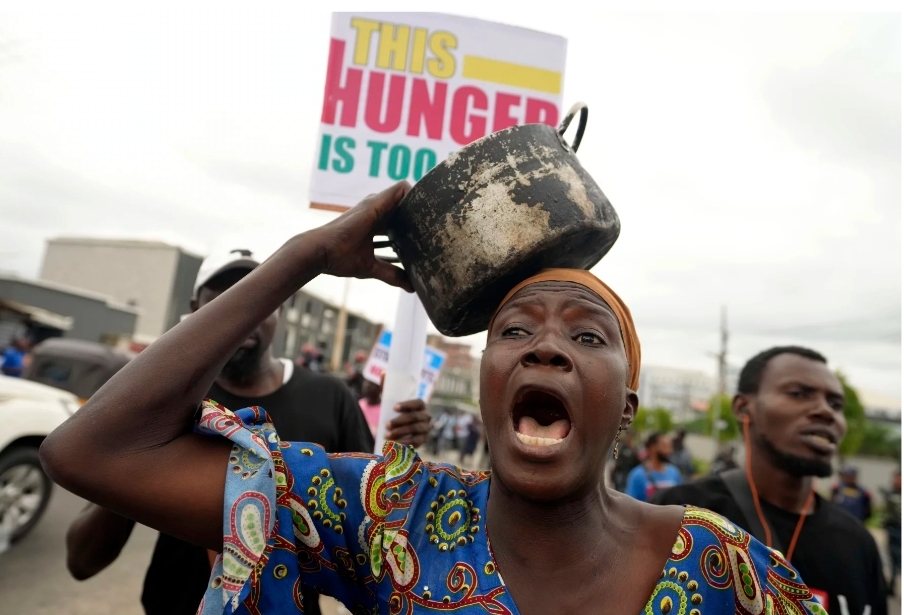
An immigration officer accidentally shot himself in the foot three times while barricading protesters in the Bulunkutu area of Maiduguri, the Borno State capital, on Thursday, according to a local news outlet.
The gunshots provoked the protesters, who feared one of their own had been hit. However, they calmed down upon learning the truth.
A joint patrol team, including police, military, immigration, Department of State Services, and Civil Defence, barricaded the Bulumkutu railway junction to prevent #EndBadGovernance protesters from reaching Maiduguri’s city centre, according to LEADERSHIP news outlet.
The self-wounded officer, part of the security team deployed to disperse the crowd in Maiduguri, was rushed to a nearby hospital for treatment. His condition remains unknown.
The protesters were demonstrating against the government’s handling of the ongoing insurgency in the region and other national issues.
Millions of Nigerians took to the streets on Thursday to protest the prevailing hunger and abuse of power in the country. At least 13 people were shot dead by police across the country on the first day, according to Amnesty International.
Demonstrations continue on Friday morning in Lagos, Ogun, Abuja, Oyo, Ogun and Rivers.
Nigeria is facing its worst economic crisis in decades, with skyrocketing inflation, a national currency in free-fall and millions of people struggling to buy food. Only two years ago Africa’s biggest economy, Nigeria is projected to drop to fourth place this year.
The pain is widespread. Unions strike to protest salaries of around $20 a month. People die in stampedes, desperate for free sacks of rice. Hospitals are overrun with women wracked by spasms from calcium deficiencies.
Although President Bola Tinubu increased the minimum wage — after strike action and months-long negotiations with labour unions — from N30,000 to N70,000, his government has increased spending for officials at a time of nationwide starvation.
For workers earning the new N70,000, or $43, per month minimum wage, capricious inflation and naira value have inflicted too much damage for the changes to make any difference in their lives.
The crisis is largely believed to be rooted in two major changes implemented by Mr Tinubu, elected 14 months ago: the partial removal of fuel subsidies and the floating of the currency, which together have caused major price rises.
A nation of entrepreneurs, Nigeria’s more than 200 million citizens are skilled at managing in tough circumstances, without the services states usually provide. They generate their own electricity and source their own water. They take up arms and defend their communities when the armed forces cannot. They negotiate with armed kidnappers when family members are abducted.
But right now, their resourcefulness is being stretched to the limit.
KOIKI Media bringing the world 🌎 closer to your door step
